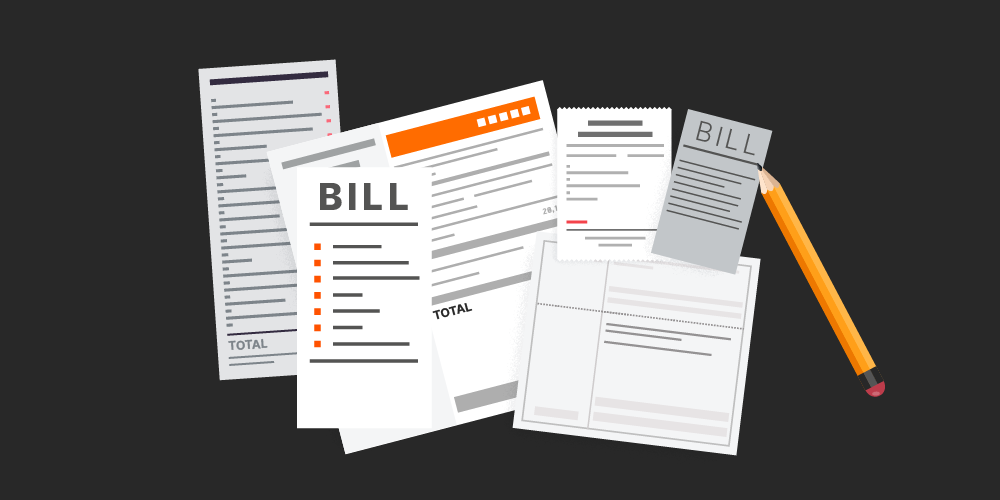— 9 min read
Security of Payment Act NSW: What Contractors Need to Know


Last Updated Sep 10, 2025

Tom Proctor
Solutions Engineer, Enterprise
13 articles
Before joining the world of technology, Tom worked as a Contract Administrator. This hands-on experience gives him a unique perspective that he leverages in his current role at Procore, where he has been for the past two years. Tom is passionate about helping construction businesses understand best practices around project management solutions and the many benefits they can provide.

Miles Cope-Summerfield
Senior Strategic Product Consultant
I'm a Strategic Product Consultant at Procore with a passion for delivering creative solutions through software. At Procore, I wear multiple hats, working in consulting, change management, product management, sales and customer success. Currently I work with Enterprise clients to consult on processes and drive Procore’s evolution as a market leader. My four years in construction/engineering equipped me with skills to combine technical knowledge with real world experience. During this time I grew a passion for sustainability through completing life cycle analyses on sustainable timber construction, and designing with modern technologies to promote eco-friendly solutions.
Last Updated Sep 10, 2025

Understand your rights and obligations under NSW's Security of Payment laws to get paid on time and protect your cash flow.
Delayed payments are a common challenge in construction, where steady cash flow is essential for project success. In New South Wales, the Building and Construction Industry Security of Payment Act 1999 (NSW) gives contractors and suppliers a legal right to claim progress payments, regardless of what the contract says.
The Security of Payment Act (SOPA) aims to keep projects moving, reduce disputes, and protect subcontractors from unfair practices.
Note: This article is intended as a general guide only and doesn’t replace legal advice. If you're unsure about your situation, it's best to speak with a qualified legal professional.
Table of contents
Key Rights Under New South Wales’ Security of Payment Act
Under SOPA, eligible claimants in New South Wales are entitled to:
- Progress payments: Payment can be claimed for work completed or goods and services supplied, even if the contract does not expressly allow for it.
- Issuing a payment claim: Formal claims can be made for amounts due, including released retention, by serving a payment claim on the respondent.
- Receiving a payment schedule: Respondents must reply within 10 business days (or sooner, if the contract specifies), stating the amount they will pay and reasons for withholding any portion.
- Adjudication: Disputes or late payments can be referred to adjudication without going to court.
- Recovering unpaid amounts: Scheduled or adjudicated amounts not paid by the due date can be recovered as a debt.
- Automatic liability for no schedule: If a payment schedule is not provided on time, the respondent becomes liable for the full claimed amount.
- Suspending work: Work may be suspended for non-payment without liability for delays.
- Interest on late payments: Interest applies to overdue amounts.
- Judicial review: Adjudication decisions can be challenged in the NSW Supreme Court for jurisdictional errors.
The Act also puts a ban on “pay when paid” clauses, meaning payment cannot be made conditional on the respondent receiving funds from someone else.
Who Can Make a Claim?
Any party that carries out construction work or supplies related goods and services under a construction contract in New South Wales can make a payment claim under the Security of Payment Act (SOPA). This includes:
- Head contractors claiming against principals
- Subcontractors claiming against head contractors
- Suppliers and consultants providing construction-related goods or services
In NSW, companies that are in liquidation cannot make payment claims or proceed with adjudication. Any application already underway is automatically withdrawn when a company enters liquidation.
Pro Tip
Residential builders are also covered.
Since 1 March 2021, contractors working under residential building contracts can access SOPA protections in NSW. This differs from states like Victoria, where residential work is excluded.
While SOPA gives these parties a clear legal pathway, not all subcontractors have the business systems or training to navigate it confidently. Many face challenges with documentation, compliance, and understanding their payment rights.
What Work Can be Claimed?
The Security of Payment Act (NSW) allows contractors and suppliers to claim payment for a broad range of construction work and related services carried out under a contract in New South Wales.
The Act provides clear definitions to ensure wide industry coverage.
Claimable work includes:
Construction work
- Building, altering, maintaining, repairing, or demolishing structures
- Civil works such as roads, pipelines, docks, railways, and power lines
- Installation of HVAC, plumbing, fire systems, lighting, security, and communications
- Painting, decorating, on-site cleaning during construction, and landscaping
- Site works including excavation, scaffolding, prefabrication, and restoration
Related goods and services
- Supply of materials or components used in construction
- Hire of equipment or plant for construction work
- Labour used to carry out construction work
- Professional services such as architecture, engineering, surveying, design, and landscape consulting
The SOPA also outlines what kinds of work can’t be claimed, which include:
- Work related to oil, gas, or mineral extraction
- Employment contracts (i.e., claims made by employees)
- Financial services contracts (e.g., tied to loans, insurance, or guarantees)
- Contracts not based on deliverables (i.e., not tied to work done or goods/services supplied)
- Work performed or goods supplied outside NSW (in which case, the relevant regional SOPA legislation would apply)
Timeframe and Deadlines
Strict timing rules sit at the heart of the Security of Payment Act (NSW). If claimants or respondents miss a deadline, it can invalidate a claim, limit available remedies, or trigger automatic liability.
These breakdowns often stem not from bad intent, but from inconsistent communication and fragmented workflows, especially when project teams rely on a mix of phone calls, emails, and manual systems to manage compliance.
Understanding the NSW-specific rules and how they differ from other states is essential for staying compliant and protecting your payment rights.
General Payment Deadlines Under SOPA (NSW)
The Act sets out different payment deadlines for claims made by head contractors and subcontractors:
- Progress payments from a principal to a head contractor must be paid within 15 business days of the payment claim being served.
- Progress payments from a head contractor to a subcontractor must be paid within 20 business days of the payment claim being served.
These statutory defaults apply unless earlier dates are set by contract.
Serving a Payment Claim
A payment claim can be issued from the end of the month when work or supply first occurred, or earlier if the contract allows. If the contract is terminated, claims can be served from the termination date.
All claims must be served within the timeframe stipulated in the contract, or within 12 months after the last work or supply, whichever is later.
Only one claim can be served per named month (unless otherwise agreed in the contract).
Responding with a Payment Schedule
In NSW, respondents have 10 business days to reply, or sooner if the contract specifies. This is shorter than Queensland’s 15 business days, and unlike the Northern Territory, where no schedule is required at all.
If no schedule is served on time, the respondent becomes automatically liable for the full claimed amount.
Applying for Adjudication
Adjudication application deadlines vary depending on the respondent’s actions:
- If a schedule is issued but underpays, claimants must apply within 10 business days of receiving the schedule.
- If the scheduled amount isn’t paid by the due date, claimants must apply within 20 business days after the due date.
- If no schedule is provided and no payment is made, claimants must serve a second notice within 20 business days of the due date. If there's still no response after 5 days, claimants must apply within 10 additional business days. This second notice process is unique to NSW.
After Adjudication
Respondents must pay on the date set by the adjudicator or within 5 business days of the decision if no date is specified. This specific timeframe is outlined in NSW legislation, but other states are less prescriptive on post-determination deadlines.
The Payment Claim Process
The Security of Payment Act (NSW) sets out a clear process for claiming and enforcing payment. Each step must be followed carefully to ensure compliance and preserve enforcement rights.
Prepare the Payment Claim
Claimants must:
Identify the work or goods/services being claimed
State the claimed amount, including any retention due for release
Clearly label the document as a Security of Payment Act claim
Head contractors must include a supporting statement confirming all subcontractors have been paid (missing or false statements may incur penalties).Serve the Payment Claim
Claimants must deliver the claim to the respondent via post, hand delivery, email (if agreed), or another method specified in the contract.
The timing of the claim must comply with both contract terms and legislative requirements.Respondents Must issue a Payment Schedule
The respondent must provide a payment schedule that identifies the claim, states the scheduled amount to be paid, and includes reasons for withholding any amount (if paying less than claimed).
Respondent Pays or Claimant Takes Action
If a valid payment schedule is issued:
The respondent must pay the scheduled amount by the due date.
If unpaid, the claimant may recover the amount as a debt in court (with limited defences available), apply for adjudication, or suspend work after giving notice.
If no schedule is issued and no payment is made, the claimant must serve a second notice before applying for adjudication if no response is received within 5 business days.Adjudication (if required)
If the scheduled amount is unpaid or is less than claimed, claimants can apply for adjudication, whereby an independent adjudicator reviews the claim and response, then issues a binding decision.
Payment or Enforcement
Respondents must pay the adjudicated amount by the date set in the determination or within 5 business days if no date is specified.
If unpaid, the claimant may:
Request an adjudication certificate
File it in court as a judgment debt
Serve notice to suspend work
Respondents cannot raise new defences during enforcement and generally cannot challenge the determination unless there is a jurisdictional error.
What Happens After You Make a Claim?
Once a valid payment claim is served under the Security of Payment Act (NSW), the next step falls to the respondent.
The respondent must serve a payment schedule within 10 business days of receiving the claim, or sooner if the contract specifies.
It must outline the scheduled amount to be paid and any reasons for withholding any part of the claimed amount. Respondents cannot raise new reasons during adjudication; only those listed in the payment schedule are considered.
If the respondent doesn’t respond by the deadline, they become liable to pay the full claimed amount by the due date for the progress payment.
If they also fail to pay, the claimant has three options:
- Recover the unpaid amount as a debt in court
- Suspend work or supply
- Apply for adjudication
Adjudication
Adjudication is a fast-track dispute resolution process under the Security of Payment Act (NSW). It allows contractors and suppliers to resolve payment disputes without the cost and delay of court proceedings.
A claimant can apply for adjudication if:
- The scheduled amount is less than the claimed amount
- The respondent fails to pay the scheduled amount by the due date
- No payment schedule is issued, and the respondent fails to pay the full claim by the due date
While adjudication is a legal right, it’s often seen as a last resort. Many contractors pursue it only after repeated non-payment. In some cases, it’s considered commercially sensitive or a “relationship killer,” so parties often attempt to resolve disputes informally first.
Pro Tip
Modern construction management software can support the adjudication process by keeping communication records, documentation, and claims history organised. This helps substantiate claims and streamline submissions.
The Security of Payments Act NSW helps contractors secure timely payments.
The Act sets out a structured process for claiming payments, responding to disputes, and enforcing rights without going to court. Understanding how it works helps contractors safeguard cash flow and keep projects on track.
See what’s coming in construction over the next decade.
Download the Future State of Construction Report for insights, trends, and innovations shaping the industry over the next 8–10 years.

Categories:
Written by

Tom Proctor
Solutions Engineer, Enterprise | Procore
13 articles
Before joining the world of technology, Tom worked as a Contract Administrator. This hands-on experience gives him a unique perspective that he leverages in his current role at Procore, where he has been for the past two years. Tom is passionate about helping construction businesses understand best practices around project management solutions and the many benefits they can provide.
View profile
Miles Cope-Summerfield
Senior Strategic Product Consultant | Procore Technologies
I'm a Strategic Product Consultant at Procore with a passion for delivering creative solutions through software. At Procore, I wear multiple hats, working in consulting, change management, product management, sales and customer success. Currently I work with Enterprise clients to consult on processes and drive Procore’s evolution as a market leader. My four years in construction/engineering equipped me with skills to combine technical knowledge with real world experience. During this time I grew a passion for sustainability through completing life cycle analyses on sustainable timber construction, and designing with modern technologies to promote eco-friendly solutions.
View profileExplore more helpful resources

Pull Planning in Construction: A Practical Implementation Guide
When teams plan in isolation, handoffs are unclear, and constraints emerge too late to influence the sequence, the outcome is predictable: Construction projects slip. This reduces schedule reliability and increases...

Construction Material Takeoffs: The Hidden Lever of Profit, Precision and Project Certainty
Accurate material takeoffs protect profit by controlling the most significant variables in project delivery: material cost and consumption. Incorrect quantities mean compromised budgets, forecasts and tender pricing. From there, a...

The Essential Guide to Construction Work in Progress (WIP)
Most construction financial problems don’t explode overnight — they drift quietly until month-end, when it’s too late to fix the damage. Work-in-progress (WIP) accounting changes that dynamic. When WIP is...

Overbilling in Construction: What It Is and How to Manage It
Does the billing actually reflect the work completed? That question isn’t always asked during a smooth progress claim. It usually comes up when certification tightens, a client challenges a payment...
